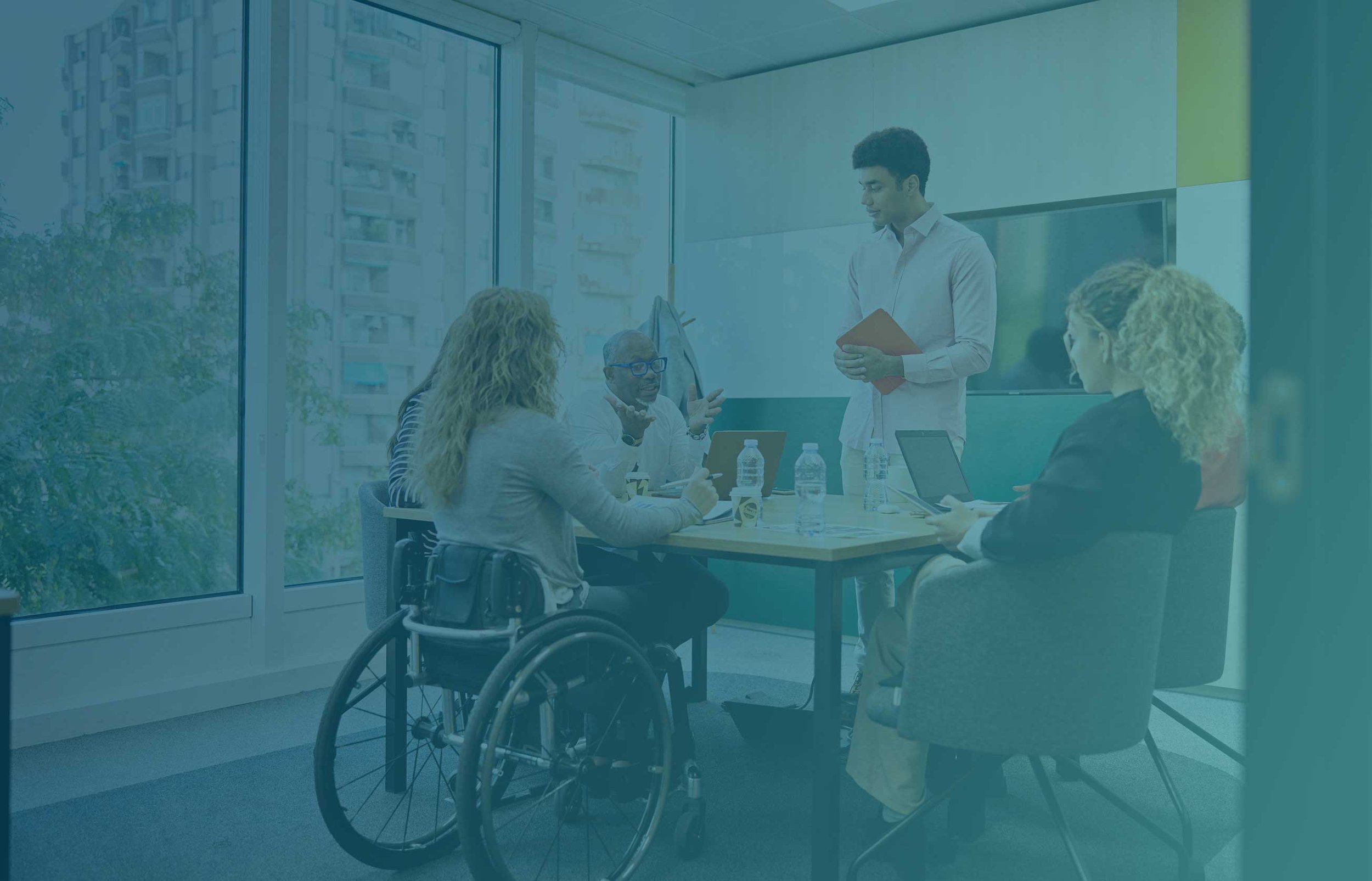
The Elevate Journal
- Leadership
- Nonprofit Support
- Accessibility
- Community Engagement
- Equity
- Data Collection
- Learning
- Internal Culture
- Collective Impact
- Storytelling
- Compassion
- Operations
- Systems Change
- Facilitation
- Impact
- Evaluation
- YPAR
- Fundraising
- Focus Groups
- Data
- Reflection
- Surveys
- Services
- Collaboration
- Strategy
- Stakeholders
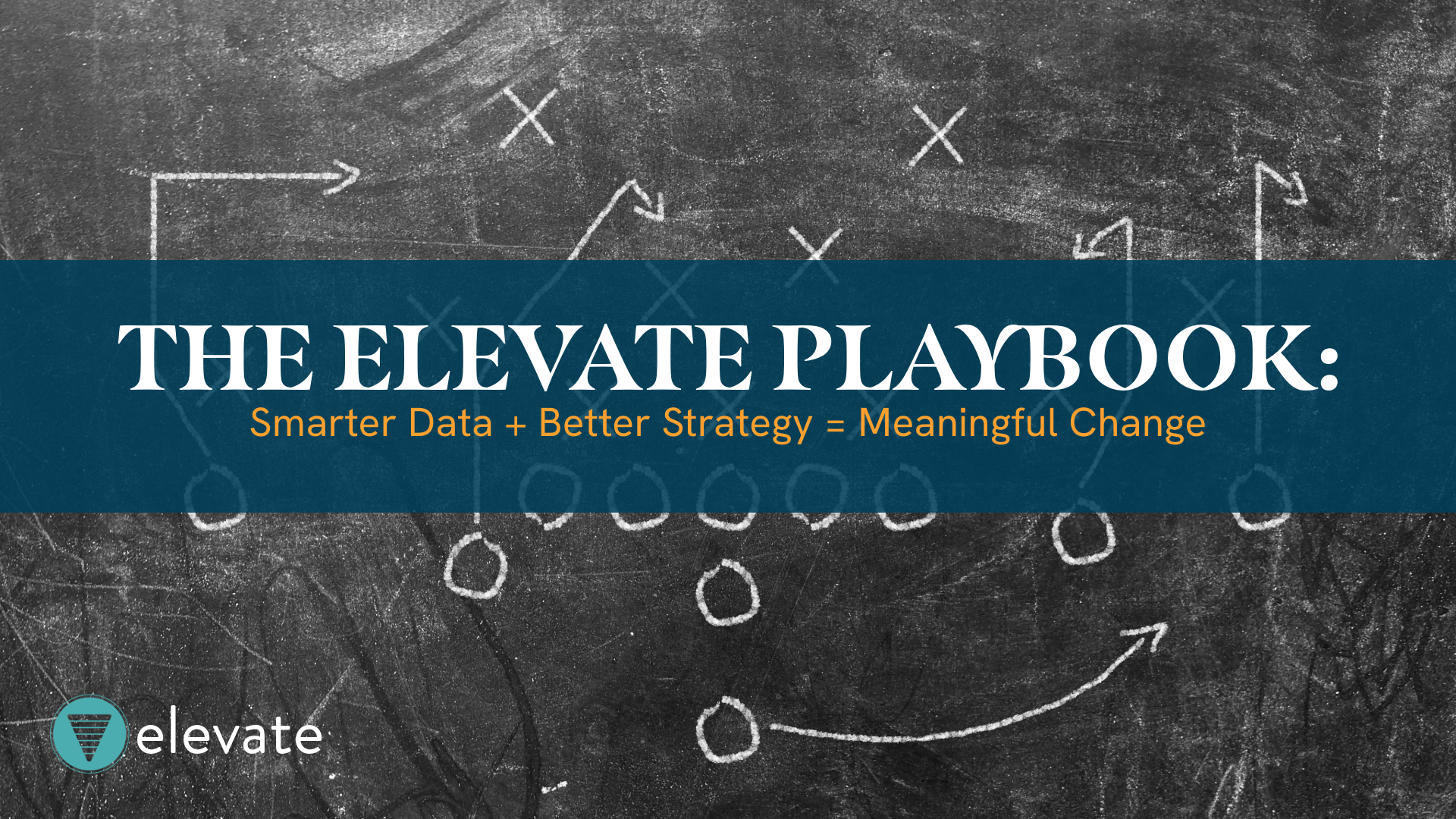
The Elevate Playbook: Smarter Data + Better Strategy = Meaningful Change
Over the past eight years, we’ve built and refined tools, frameworks, and approaches to support both, working with programs, organizations, and collaboratives to put them into action. We want to share what we’ve learned with you.

Elevate’s Reflections from Recent Conferences
October has been a busy month for Elevate! Many members of our team attended both the TN Nonprofit Conference in Memphis, TN, and the AEA Evaluation Conference in Portland, OR. They made lots of connections, learned and unlearned things, and they’re excited to share their takeaways!
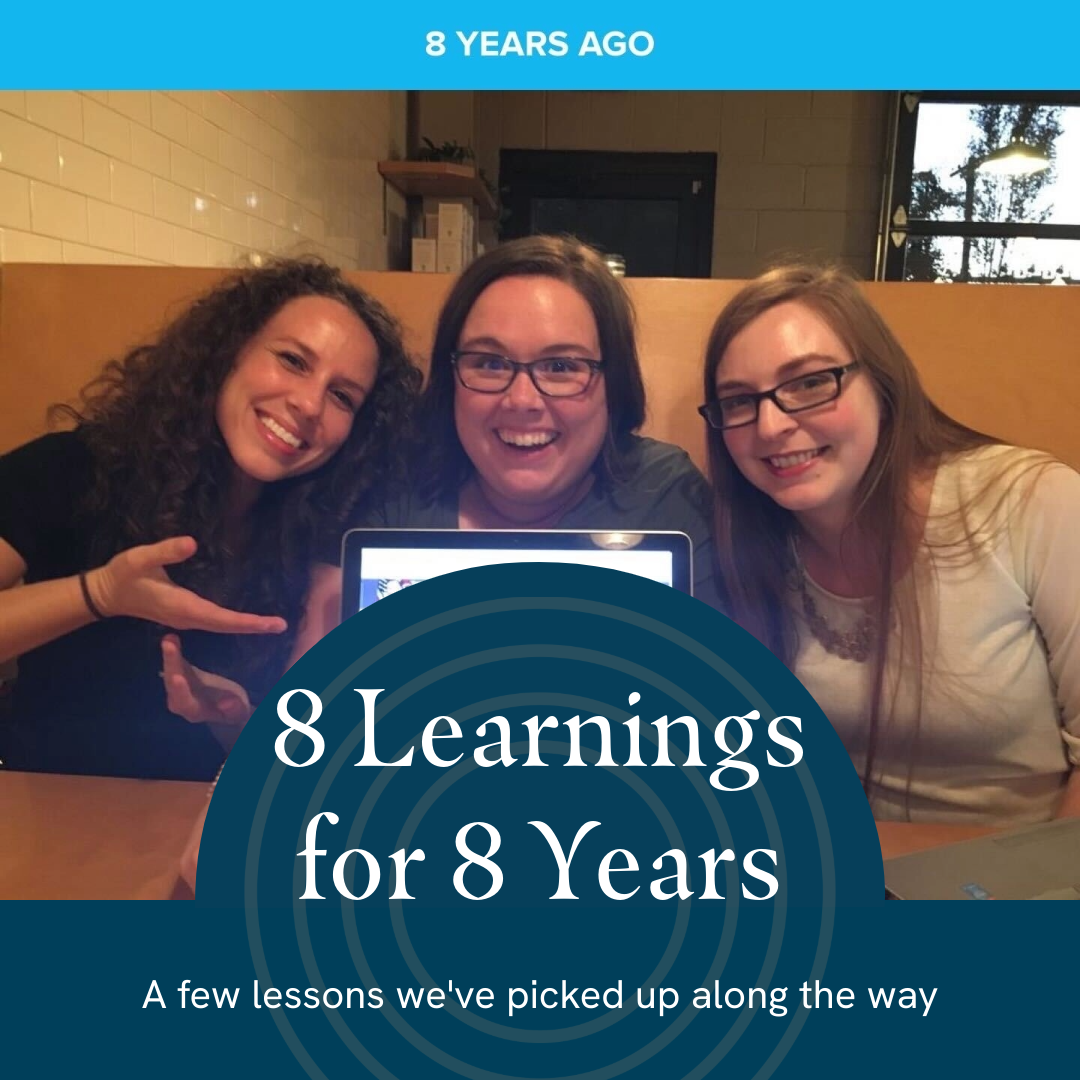
8 Learnings for 8 Years
This month marks eight years since we started Elevate. We were three young professionals with a shared vision who saw a need in the sector, so we jumped in—armed with ambition and plenty of coffee. Over the years, we’ve poured long hours into this work, celebrating wins, tackling tough challenges, and staying true to our core value: learning. In that spirit, we took some time to reflect on what’s brought us here. Here are a few lessons we’ve picked up along the way.

Rediscover Elevate: Get to Know Us and Explore Our New Services!
Let us reintroduce ourselves! Elevate Consulting is a full-service firm dedicated to supporting nonprofits, collaborative community groups, foundations, and municipalities in designing and implementing smart, efficient strategies and programs that improve their community. We are here to help you and your organization live out your mission and drive equitable social change in the world.
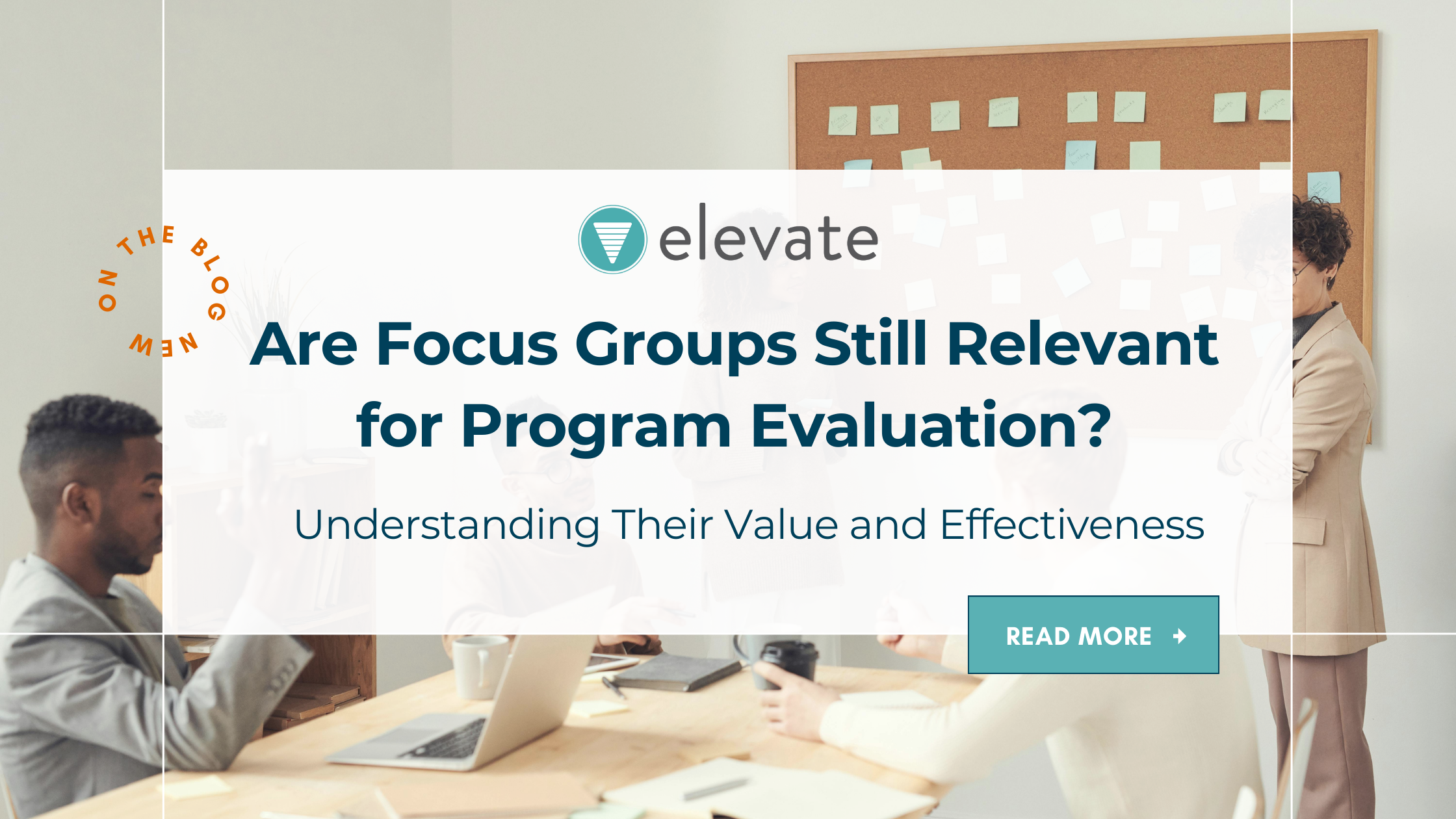
Are Focus Groups Still Relevant in Program Evaluation? Understanding Their Value and Effectiveness
In the ever-evolving landscape of program evaluation, focus groups have long been a staple for gathering qualitative insights. As we navigate a world filled with digital distractions and shifting preferences, the question arises: Are focus groups still an effective tool for program evaluation? Let’s explore what focus groups are, when they should be used in program evaluation, and their current effectiveness.
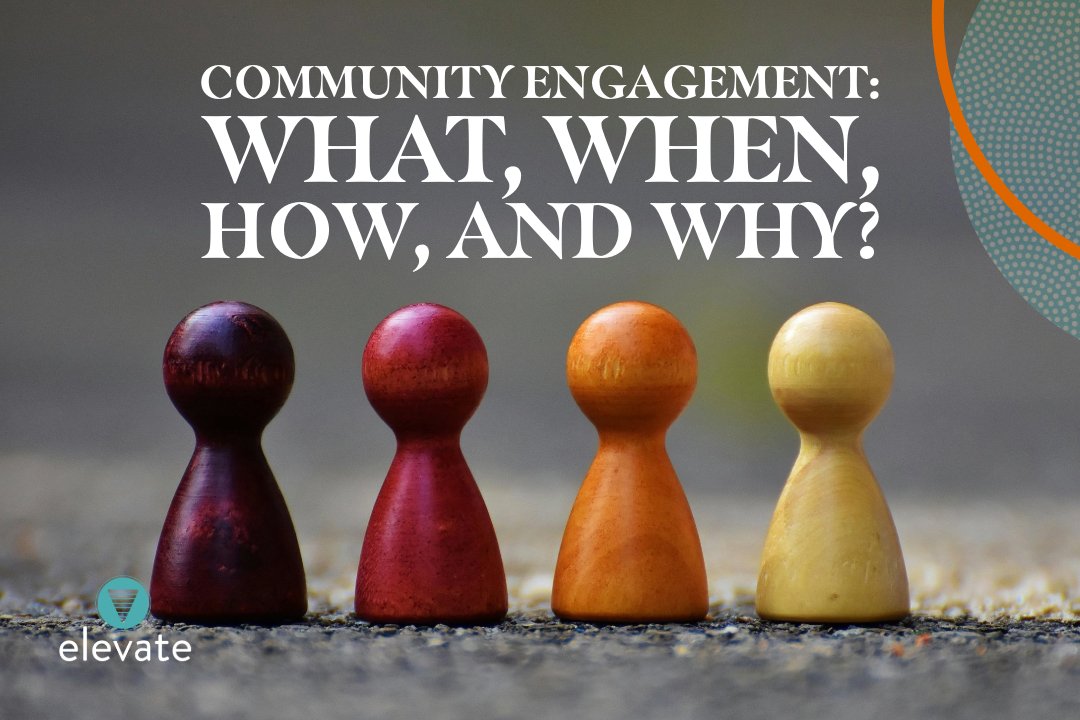
Community Engagement: What, When, How, and Why?
Community engagement, rooted in civic engagement principles and community organizing, has evolved significantly. Its importance has grown across the nonprofit, public, and private sectors, leading to varied experiences, definitions, and interpretations.
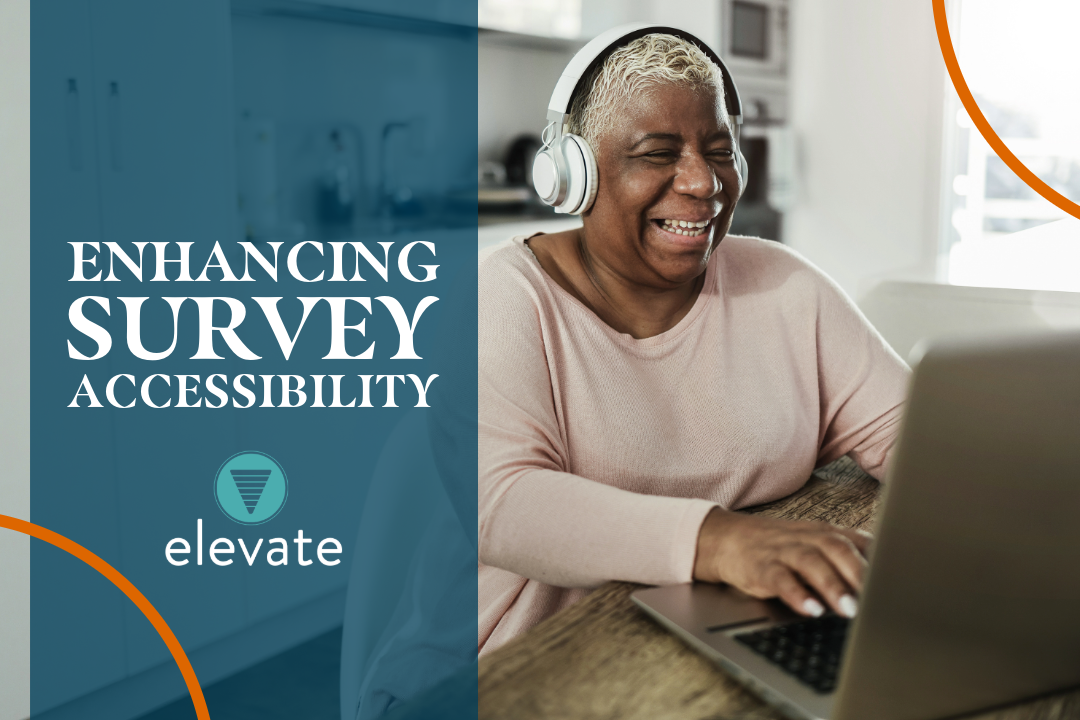
Enhancing Survey Accessibility
Several of West End Home Foundation's funded partners serve older adults who are blind or have limited vision. This challenged us and our partners at WEHF to consider ways to make our online survey more accessible to these individuals. We haven’t arrived at a perfect solution yet, but here are some strategies we’ve learned about that can make online survey data collection more approachable for individuals who are blind.
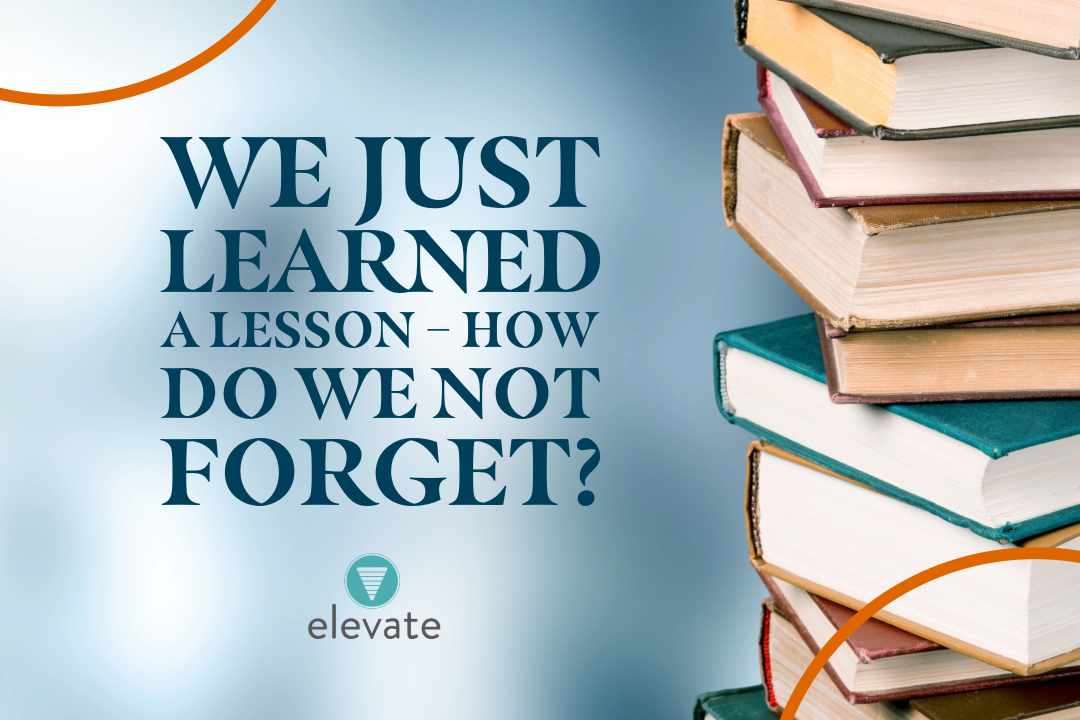
We Just Learned a Lesson – How Do We Not Forget?
While most of the thought around learning begins and ends in school, our ability and necessity to learn carries us through the rest of our lives. Because we are taught at such a young age to retain so much information, it can get tricky understanding what to keep and what to forget (I know I don’t remember a lot of the things I learned in school). As we grow and change, the necessity for a mental rolodex of dates, relationships, professional development information, songs, books, etc. increases while the proverbial room in our minds stays the same. How do we keep this information safe and readily accessible? How do we know what information is not necessary to keep on standby?
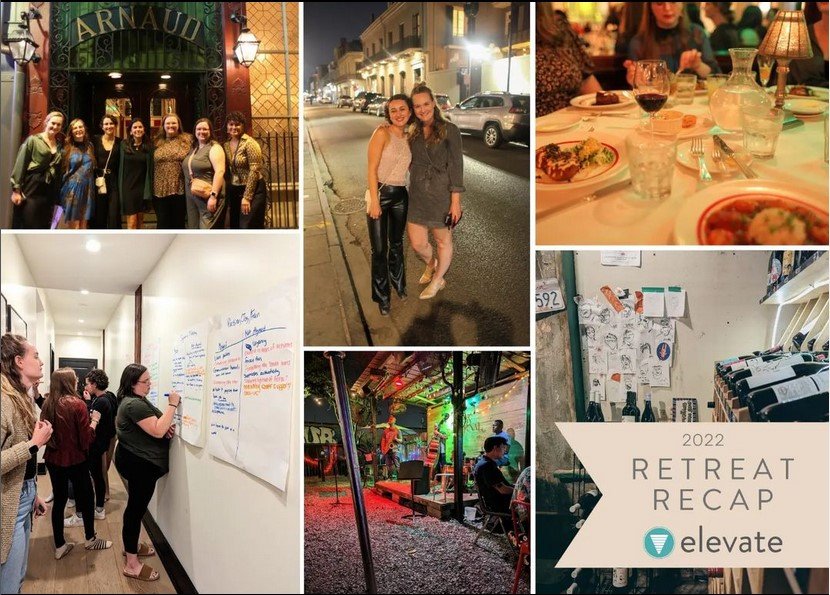
Reflections from AEA and Staff Retreat
At the beginning of November, our team attended the conference for American Evaluator’s Association (AEA) in New Orleans, and combined that trip with our annual staff retreat. AEA’s annual conference is a touchstone in the ever-evolving field of evaluation and allows professionals from a variety of sector and roles to exchange ideas and engage in dialog about the practice and role of evaluation in social change.

Facilitating Groups Utilizing Emergent Strategy Principles
At Elevate, we have the pleasure of working with many different groups working toward changing the systemic conditions that are creating and reinforcing marginalization and injustice. We do this in a number of spaces, from early childhood to homelessness to workforce development, and in every situation, we’re challenged by the complexity of the systems, the scope of the challenges, and the nuances of the relationships of the people in the room. These spaces require us to be not only skilled facilitators but also constant learners and scholars of the ways in which systems change can actually be brought about.
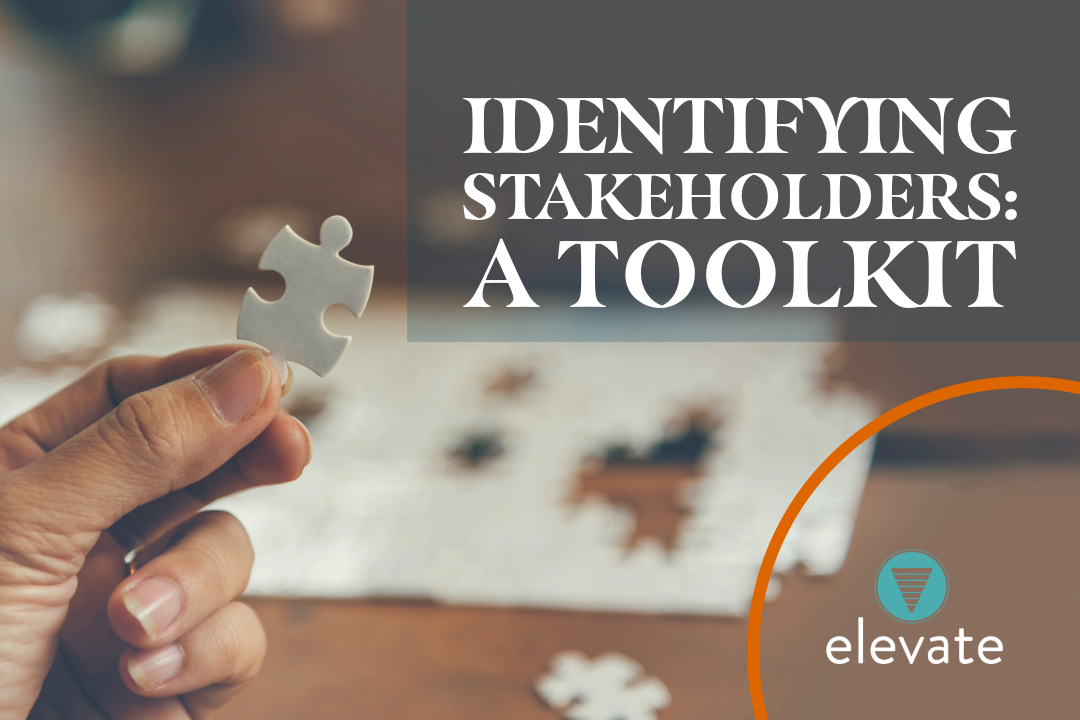
Identifying Stakeholders: A Toolkit
It is likely that the term “stakeholders” is one you’ve heard before. It’s used across sectors to describe someone who has an interest in and/or is affected by a business, an investment, a project, etc. Stakeholders can be individuals, communities, social groups, or organizations. At Elevate, stakeholders are an essential part of our approach to evaluation and to systems change work.
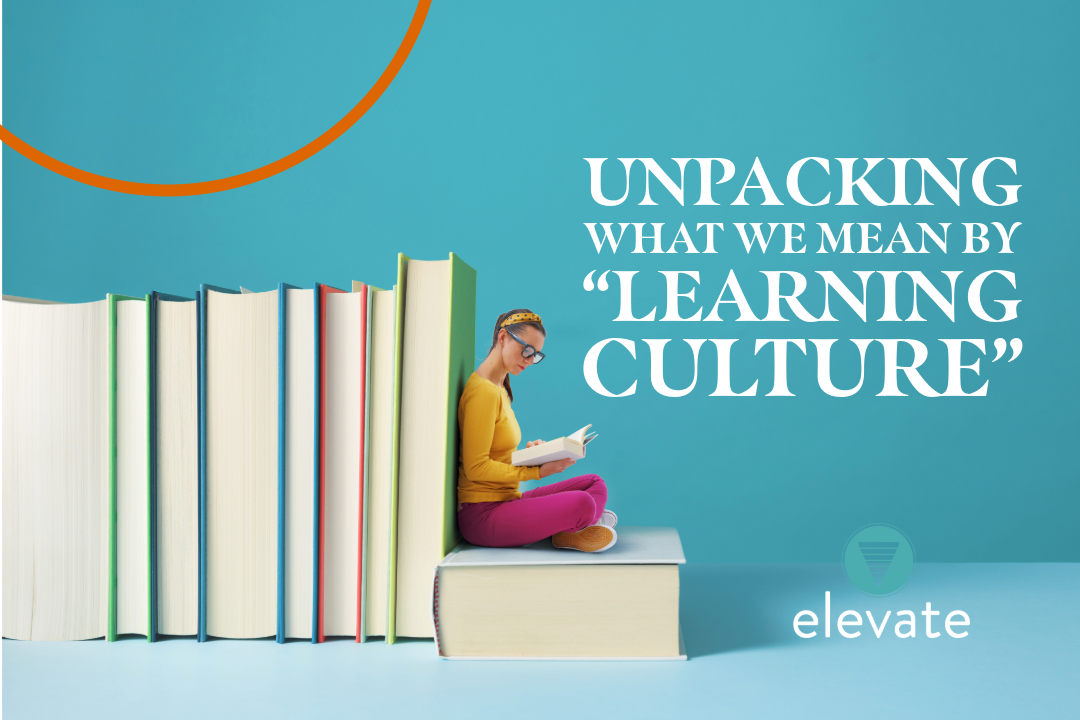
Unpacking What We Mean by “Learning Culture”
You have likely heard or read about the idea of a learning culture. If you heard about it from us, you may have seen the stars in our eyes as we talked about our earnest belief that shifting organizational cultures to center learning can transform the nonprofit landscape, leading to more engaged and fulfilled staff, stronger relationships across agencies, and ultimately, better outcomes for clients.
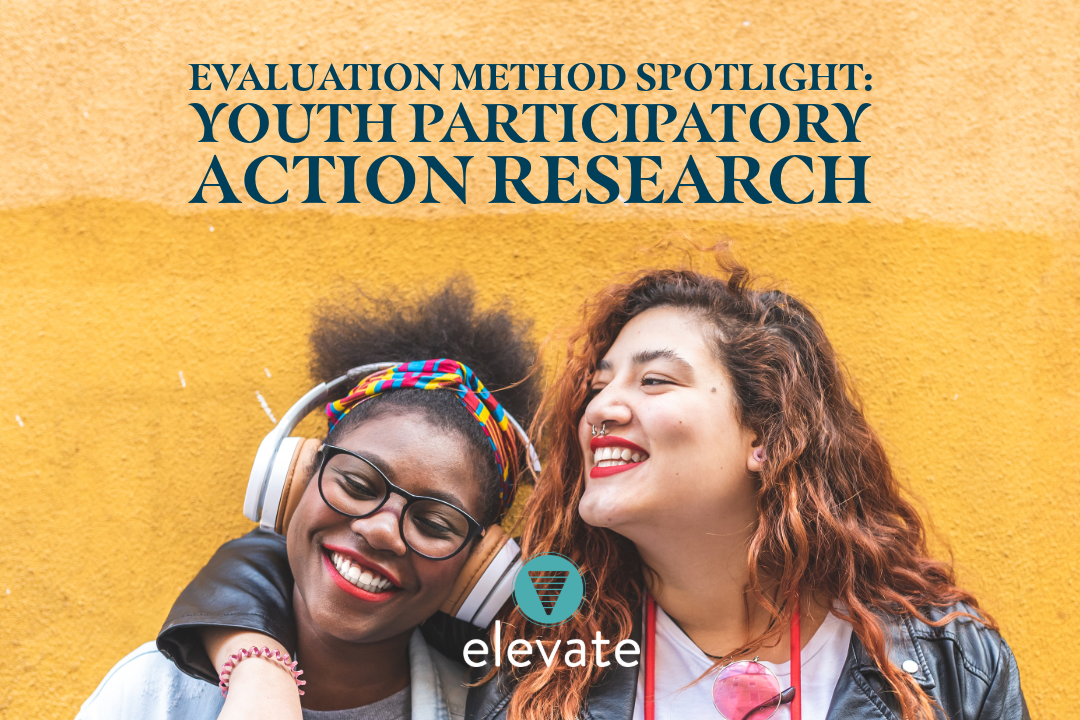
Evaluation Method Spotlight: Youth Participatory Action Research
At Elevate, we strongly believe that evaluation and research must go beyond the numbers to tell the stories of people and communities. As such, we believe in the value of qualitative and community-based, participatory methods and approaches, including participatory action research (PAR). Specifically, we recently had the privilege to support Nashville’s Opportunity Youth Collaborative (OYC) in conducting a youth participatory action research (YPAR) project with its Youth Leadership Team to inform the strategy of the OYC.
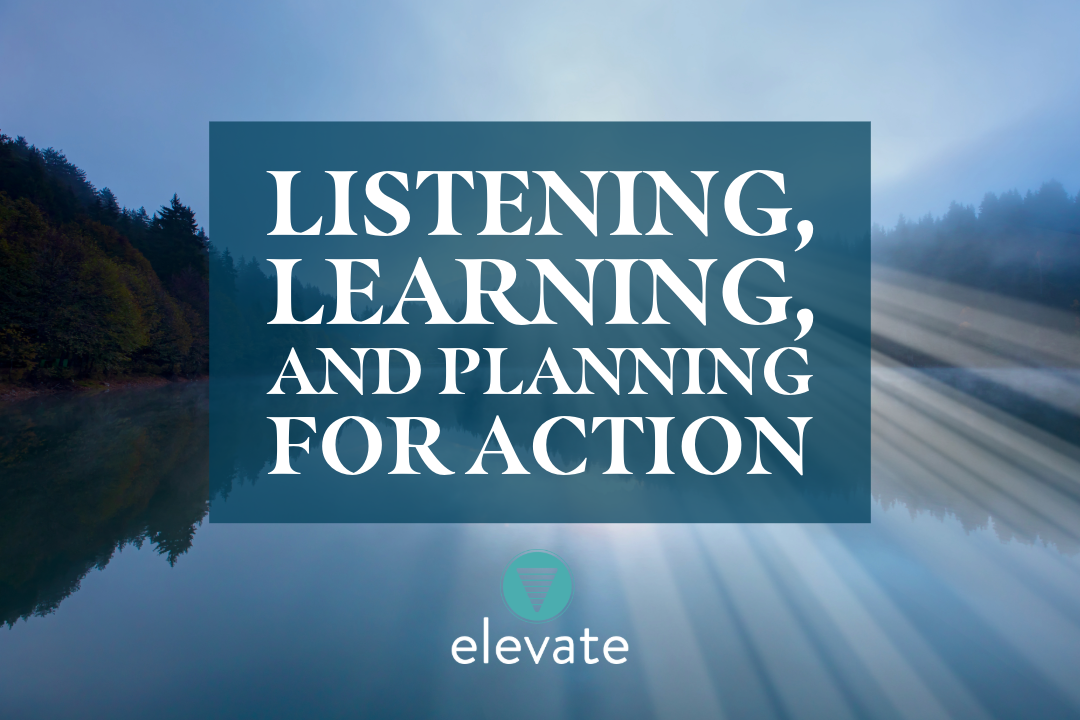
Listening, Learning, and Planning for Action
We unequivocally believe that Black lives matter, and we recognize the power that data and narrative have in the fight for justice. We recognize that as a team of mostly White women, we are privileged in that, most days, we are able to compartmentalize these conversations. We know we don’t have the answers, and we know we will not get it right, but we are committing to making space to reflect, learn, unlearn, and grow.
